kategori film bahasa dzongkha
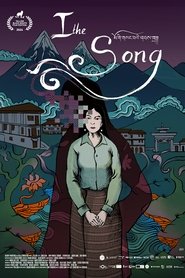 In Bhutan a country of 700000 people...
In Bhutan a country of 700000 people...I, the Song 2024
In Bhutan, a country of 700,000 people, everyone knows everyone else. Nima, a schoolteacher, faces trouble when an explicit intimate video surfaces online, featuring a woman who looks exactly like her. Determined to calm her students’ outraged parents, Nima embarks on a quest to find her naughty lookalike. But her doppelganger, Meto, has disappeared without a trace. The locals, struck by Nima’s uncanny resemblance to Meto, begin to believe she is Meto’s long-lost ghost. The village elders suggest singing Aum Tshomo’s sacred song to unravel the mystery. Now, Nima must open her heart and sing to rebuild her shattered life.
 The documentary team follows two happiness...
The documentary team follows two happiness...Agent of Happiness 2024
The documentary team follows two happiness agents in their forties who spend a month and a half on the road twice a year, going door-to-door with their questionnaires in isolated villages in the Himalayas. The filmmakers undertake to provide an intimate insight into the daily lives and desires of Bhutanese people, and also seek the answer to the universal question of whether happiness can really be measured. Gross National Happiness promises a heart-warming journey into a mysterious, fairytale-like world, which is the exact opposite of the social order dominated by consumption and desires.
 In Bhutan 11yearold Yangchens father is...
In Bhutan 11yearold Yangchens father is...Mountain Man 2022
In Bhutan, 11-year-old Yangchen’s father is the country’s glacier specialist, and thus the only person authorized to climb the mountains, which are considered to be sacred. He spends months away from home measuring the rapidly melting glaciers. While hiking through the snow to the farthest reaches of the Bhutanese Himalayas, he faithfully shoots videos for his daughter with his phone. These videos take the viewer into breathtaking landscapes, but it also becomes increasingly apparent that something irreversible is happening.
 As the Internet finally arrives in...
As the Internet finally arrives in...Sing Me a Song 2020
As the Internet finally arrives in tiny Bhutan, documentarian Thomas Balmès is there to witness its transformative impact on a young Buddhist monk whose initial trepidation gives way to profound engagement with the technology.
 Sangai a teenage girl living with...
Sangai a teenage girl living with...The Red Phallus 2019
Sangai, a teenage girl living with her father in a village of inland Bhutan, is not happy with her father, who makes wooden phalluses, believed to have mysterious power, and playing a festival clown with a red mask at a local festival. She reluctantly delivers the phalluses to neighbors but she is followed by dozens of men with red masks and costumes when walking through the hill. Conflict and tension grows between the father, who has concerns about his successor, and Sangai, who has a clandestine relationship with a married man.
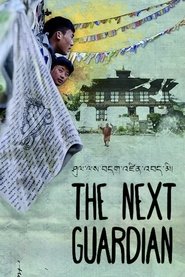 Brother and sister Gyembo and Tashi...
Brother and sister Gyembo and Tashi...The Next Guardian 2018
Brother and sister Gyembo and Tashi are normal teenagers. They love soccer and their phones. In their Himalayan village, their father oversees a Buddhist temple that has been in the family for generations. He hopes his son will one day take over his duties. He would prefer that Gyembo leave his modern English-language school in favor of a monk school. In this thoughtful and tender portrait of a Bhutanese family, the generation gap is as large as their love for one another. Celibacy doesn't offer an enticing future to an adolescent boy, which Gyembo's father understands. Nonetheless, he still tries to convince his son that being a monk offers many advantages. Meanwhile, Tashi feels more like a boy than a girl, and dreams of a life as a pro soccer player. She wants to attend a soccer camp that would be the first step in being selected for the national team. Unfortunately, though happiness is high on the political agenda in Bhutan, not all wishes come true.
 A girl born deaf and wishing...
A girl born deaf and wishing...A Song of Silence 2018
A girl, born deaf and wishing to hear, travels through the four elements of nature: earth, air, fire and water. But when her wish is granted, and she manages to hear the sounds of this earth, she is disappointed, overwhelmed with the noises of our digital world. Slowly, she falls back into silence.
 After a tragic accident kills her...
After a tragic accident kills her...Lencha 2018
After a tragic accident kills her parents and brother, teenager Samaya is sent far away to study abroad by her wealthy grandfather, her only surviving family. After she returns home a well-educated, beautiful young woman she resumes friendship with her two childhood friends- Sonam and Mindu. As Samaya and Sonam’s feelings for each other develop further, Mindu becomes increasingly envious and frustrated.
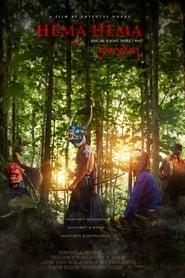 The dazzling new film from Bhutanese...
The dazzling new film from Bhutanese...Hema Hema: Sing Me a Song While I Wait 2016
The dazzling new film from Bhutanese lama and filmmaker Khyentse Norbu (The Cup, Travellers and Magicians) chronicles a sacred jungle ritual whose masked, anonymous participants seek after complete self-knowledge — or descend into thievery, violation, and murder.
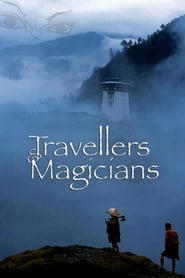 A young government official named Dondup...
A young government official named Dondup...Travellers and Magicians 2003
A young government official, named Dondup, who is smitten with America (he even has a denim gho) dreams of escaping there while stuck in a beautiful but isolated village. He hopes to connect in the U.S. with a visa out of the country. He misses the one bus out of town to Thimphu, however, and is forced to hitchhike and walk along the Lateral Road to the west, accompanied by an apple seller, a Buddhist monk with his ornate, dragon-headed dramyin, a drunk, a widowed rice paper maker, and his beautiful daughter, Sonam.
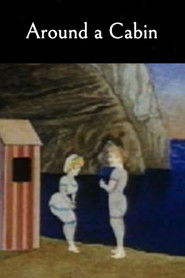 The film consists of a series...
The film consists of a series...Around a Cabin 1894
The film consists of a series of animations on a beach containing two beach huts and a diving board. Two characters play at diving into the water from the diving board and then appear on the beach. The woman begins to play with a small dog and is then joined by a gentleman. The two play around on the beach before getting changed into bathing costumes and going into the water. They bob up and down in the water before swimming out of the scene. Once the couple have gone a man sails out in a boat.
 An American travels to Bhutan searching...
An American travels to Bhutan searching... A housewarming weekend reunites four friends...
A housewarming weekend reunites four friends... A teacher in search of inspiration...
A teacher in search of inspiration... The film is not about walking...
The film is not about walking...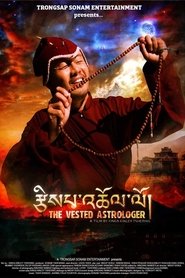
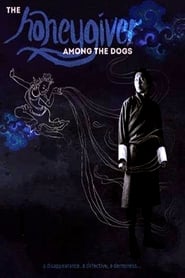 In the remote Bhutan an undercover...
In the remote Bhutan an undercover... Ap Bokto travels through a thick...
Ap Bokto travels through a thick...